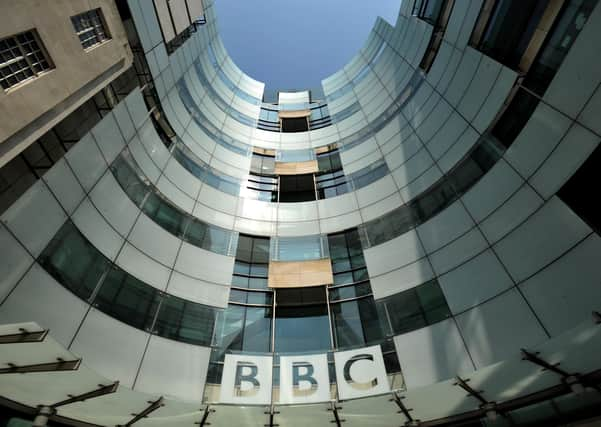A ‘history’ report about Northern Ireland on BBC website will confirm unionist fears about its coverage


According to the BBC:
“The conflict in Northern Ireland known as the Troubles lasted almost 30 years from the late 1960s, and cost the lives of more than 3,500 people. But the origin of the Troubles goes back much further, to when the island of Ireland was divided in 1921.
“Northern Ireland was created and remained part of the UK, while the rest of Ireland became an independent state.


Advertisement
Hide AdAdvertisement
Hide Ad“This created a split in the population between the unionists — who were mainly Protestants and were happy to stay in the UK — and nationalists, who were predominantly Catholics and wanted to join the new Irish state.
“Many Catholics faced discrimination in jobs and housing and in the late 1960s began protests which were met with a crackdown from the NI government, and led to the UK government to deploying troops in 1969. They were largely welcomed, but later armed groups from both sides, like the IRA and UDA, began carrying out bombings and shootings.
“Peace talks started in the 1990s, and culminated in the 1998 Good Friday Agreement.”
To imply that the cause of the terrorism which began in the late 1960s was the birth of Northern Ireland is nonsense.
Advertisement
Hide AdAdvertisement
Hide AdThe article presents discrimination against the minority population as fact without presenting evidence or recognising historians who dispute the nationalist narrative on the first 50 years of Northern Ireland.
The reference to the IRA, saying it “began carrying out bombings”, grossly understates the calculated nature of that terror campaign, in which they killed far more people than any other group did.
That the republican movement now retains a significant mandate is an affront to democracy.
This historically illiterate take on the origins of the futile and barbaric IRA campaign is disgraceful.
Advertisement
Hide AdAdvertisement
Hide AdIn truth, the survival of NI to this our centenary year is testament to the courage of our security forces, despite successive governments appeasing terrorism.
The BBC must be fair in its handling of history.
This short piece confirms to unionists the belief that the BBC is interested in talking down Northern Ireland and avoiding any hint of celebration our 100th birthday.
• Stephen Cooper is TUV councillor for Comber
• At the time this article went to press, the history panel was included within this BBC report: Don’t imperil NI peace, Biden to warn UK and EU
——— ———
A message from the Editor:
Thank you for reading this story on our website. While I have your attention, I also have an important request to make of you.
Advertisement
Hide AdAdvertisement
Hide AdWith the coronavirus lockdown having a major impact on many of our advertisers — and consequently the revenue we receive — we are more reliant than ever on you taking out a digital subscription.
Subscribe to newsletter.co.uk and enjoy unlimited access to the best Northern Ireland and UK news and information online and on our app. With a digital subscription, you can read more than 5 articles, see fewer ads, enjoy faster load times, and get access to exclusive newsletters and content. Visit https://www.newsletter.co.uk/subscriptions now to sign up.
Our journalism costs money and we rely on advertising, print and digital revenues to help to support them. By supporting us, we are able to support you in providing trusted, fact-checked content for this website.
Alistair Bushe
Editor